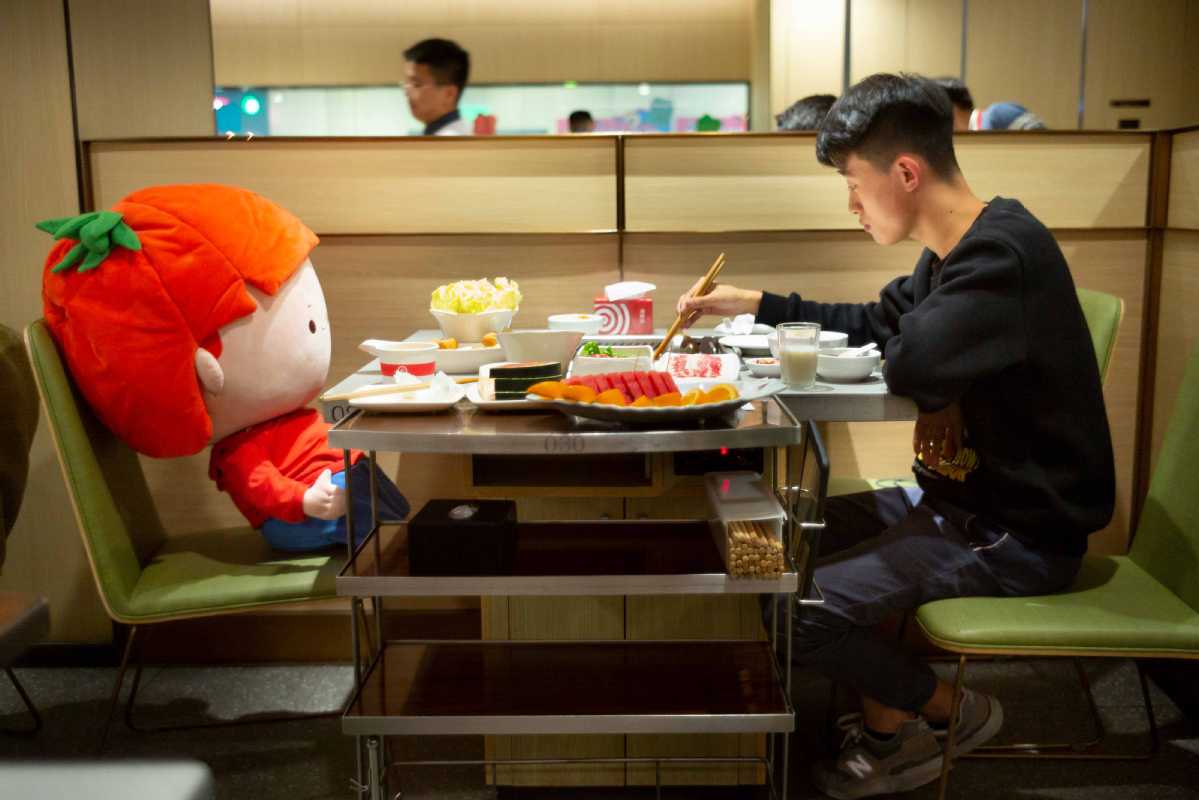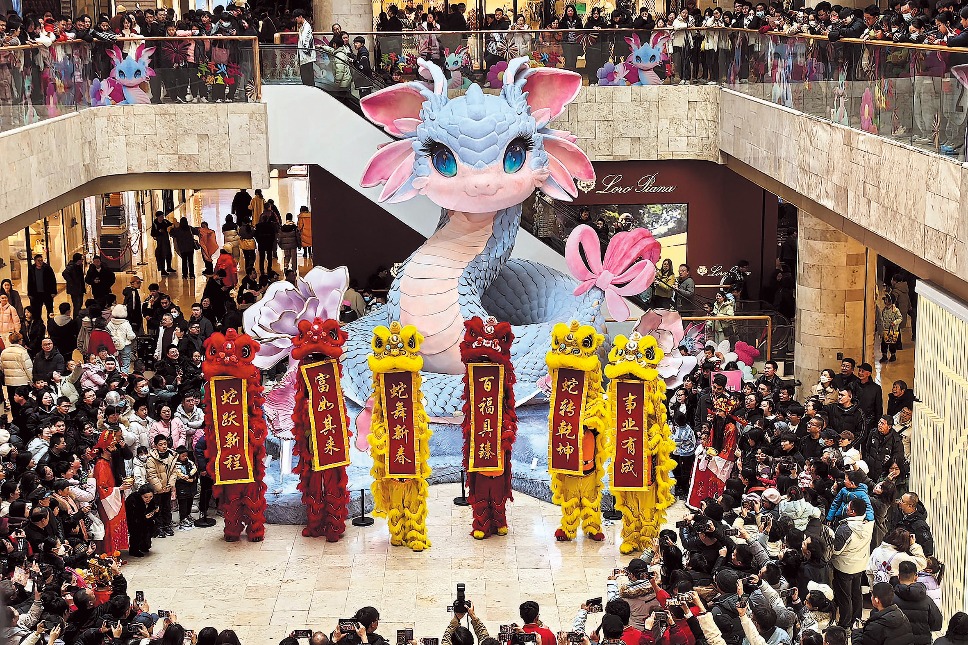Taste of spring dishes out a golden opportunity for nation's eateries


It's midday on a balmy Sunday. At a hotpot camping restaurant in the Pudong district in Shanghai, demand exceeds available seats. People line up to camp and eat hotpot in good weather. According to Haidilao, its operator, the average daily number of visitors to its camping outlet surpasses 500.
In Beijing, Nanjing and Anhui province's Ma'anshan, Haidilao's hotpot camping restaurants are also packed.
This is the charm of the spring economy, when the consumption is boosted by seasonal ingredients, such as spring bamboo shoots, shepherd's purses and broad beans, along with some outdoor activities, such as camping and hiking.
Now, as the spring approaches its end in China, the nation's catering enterprises are taking their last chances to dig for more golden nuggets as the spring economy underpins consumption demand.
The company said the idea of combining hotpot and camping came as it found out that hotpot camping outlets have become a new darling of diners to spend their weekends and vacations. For them, instead of going for long travel, an easy day trip to the city's suburbs, going camping and eating hotpot, is a good way to relax.
"As soon as I knew of the idea of hotpot plus camping, my friends and I drove 45 kilometers to the suburbs in Beijing, to 'embrace spring'. Stressed out all week from work, there is nothing greater than camping while having hotpot with friends, enjoying the beautiful scenery in the spring," said Liu Zhifang, a 30-year-old hotpot lover in Beijing, who spends an average of 4,000 yuan ($549) on dining out per month.
Data from the National Bureau of Statistics showed that in the first quarter, sales in China's catering industry surpassed 1.4 trillion yuan ($191.8 billion), up 4.7 percent year-on-year.
Apart from the government's favorable policies, the theme of spring also greatly triggered the vigor of food and beverage consumption, said the China Cuisine Association.
According to a report from catering market observer canyin88.com, in March, the national catering industry prosperity index rose significantly from 114.9 in February to 157.8, a month-on-month increase of 37.3 percent, reaching the highest point in nearly six months.
The robust growth indicated the comprehensive recovery of consumption momentum and the further release of vitality in the catering market, said the report.
Zhu Danpeng, an independent food and beverages analyst based in Guangzhou, said: "There are a lot of seasonal ingredients in spring. To cater to the core needs of the consumption end, catering enterprises are upgrading their menus and services. In this way, consumers are offered a sense of ritual of 'tasting the spring', while enterprises are offered great business opportunities."
Triggered by the spring economy, a bunch of restaurants launched special dishes and services, adding seasonal ingredients into their spring menu, so as to satisfy consumers' taste buds.
For example, the Hepingmen outlet of Peking roast duck chain Quanjude launched a special dish — steamed shrimp on egg white mixed with fresh peas.
"Spring is the best tasting season for fresh peas. The peas' sweet and crispy texture complements the chewy shrimp, in line with 'spring freshness'. Meanwhile, the color of the dish is green colliding with pinky white, satisfying consumers' pursuit of a sense of ritual of 'spring limited edition'," said Wu Yurui, executive chef of the Hepingmen outlet of Quanjude.
The Nanjing Dapaidang restaurant chain included wild vegetables, mandarin fish, clams, Margarya melanioides and lobster with Huadiao rice wine in a beautiful infusion of spring flavors for its spring special menu. After the meal, the restaurant offers diners orychophragmus violaceus (Chinese violet cress) seeds and a small shovel, so that diners can plant "their own spring" at home.
The restaurant has stuck for years to launching seasonal series of dishes, because it aims to serve its diners with food and taste that can reflect the change of seasons, said Nanjing Dapaidang.
Although tasting spring freshness has become more popular among diners, experts said enterprises should still stick to their original intention of cooking.
China's catering industry has entered a quickly expanding and rapidly evolving stage. While featured products and seasonal products are critical to their growth, restaurants should still focus on food itself and the way it is cooked, in order to maintain long-term development, Zhu said.




































